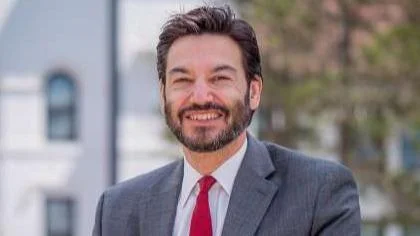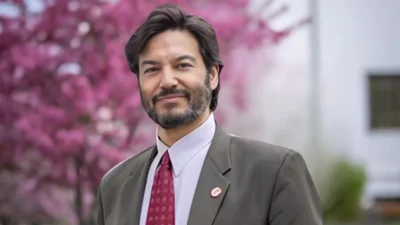President Jonathan Koppell | Official website of Montclair State University
President Jonathan Koppell | Official website of Montclair State University
Family therapist and Student Assistance Counselor Joy Przywara reports that an online trauma course at Montclair State University has significantly changed her approach to both her professional and personal life. Przywara said, “The From Trauma to Healing: Healing-Centered Approaches to Trauma in Families and Communities course was so much more than I expected. I feel so much better prepared as a professional. I can say with confidence that this has changed my approach and deepened my understanding.”
The trauma-centered certificate program is now entering its third cohort, starting October 13. It is a collaboration between Montclair’s Department of Family Science and Human Development (FSHD), part of the College for Community Health, and the New Jersey Department of Children and Families’ Office of Resilience. The program targets professionals in education, law enforcement, social services, and mental health fields.
Rebecca Bryan, Executive Director of the Office of Resilience, commented on the partnership: “We’re so deeply appreciative to Montclair for creating a course of this caliber. Montclair was a perfect fit for this kind of work because it’s community focused, and we’re community focused.”
FSHD Chair Lyndal Khaw highlighted the broader impact: “This course fulfills New Jersey’s goal of being a trauma-informed and healing-centered state, while advancing President Jonathan Koppell’s mandate to be a public-serving institution. It benefits professionals who work with people and helps strengthen communities around us.”
Przywara explained how the training affected her roles as a counselor at a vocational school, private practice counselor, wife, mother of a child with autism, and cancer survivor. She said the course helped her recognize underlying causes behind behaviors: “There’s a story behind what students are doing. There’s a why, and once you get to that, you’re usually able to find a connection with the student.” She added that using compassion informed by an understanding of trauma improves counseling outcomes.
She also shared: “This has saturated my parenting, my relationship with my husband of 20 years; it’s made me reflective.” Przywara concluded that one key insight from the course was realizing “We’re not just damaged, we’re damaged and coping. That’s a special piece because then you’re not counseling ‘at,’ you’re counseling ‘with.’”
The 10-week online curriculum focuses on healing-centered approaches within social contexts rather than only traditional trauma-informed care. It blends research on neurobiological responses to trauma with practical strategies for professionals working with families or communities. Participants earn continuing education credits and receive micro-credential certificates from both Montclair State University and the DCF Office of Resilience.
Khaw described its uniqueness: “This was the first time FSHD offered a course designed to be community-serving and responsive. It’s an interactive, comprehensive look at trauma and how professionals can be more trauma-informed in their everyday practices to support families and children.”
Robin Wanner from Bergen’s Promise noted how valuable she found the experience: “In general, it helps you be a more sensitive individual, to understand or have a sensitivity to where people might be coming from in their humanity. It makes you step back and look at your own life or parenting or generations in your own family to recognize things you may not have understood before.”
The Office of Resilience promotes use of its Trauma-Informed Continuum model—trauma aware → trauma sensitive → trauma responsive → healing centered—to help organizations progress toward strengths-based approaches. Bryan stated: “When you take the final step to become healing centered, you realize that we are more than our trauma. The trauma is a part of the story, but we’re already whole; we’re incredibly resilient. The focus is strengths-based.”
Enrollment in Montclair's course doubled between its first two cohorts as demand increased among professionals seeking these skills.
Established in 2020, New Jersey's Office of Resilience works on long-term effects from Adverse Childhood Experiences (ACEs) by offering statewide training sessions free-of-charge along with organizational tools such as self-assessment resources for agencies aiming to improve their trauma response capabilities.
In early 2021 New Jersey launched an action plan aimed at reducing childhood adversity by keeping students safe in schools while supporting healing from various forms of trauma.
Through its partnership with Montclair State University—which reserves seats for state employees—the office also provides scholarships so cost does not prevent participation. Bryan said: “One of our deeply held beliefs is that cost should not be a barrier to this knowledge,” adding that “Montclair is a key component of taking trauma training to the next level. This is meant to be a long-term relationship.”


 Alerts Sign-up
Alerts Sign-up